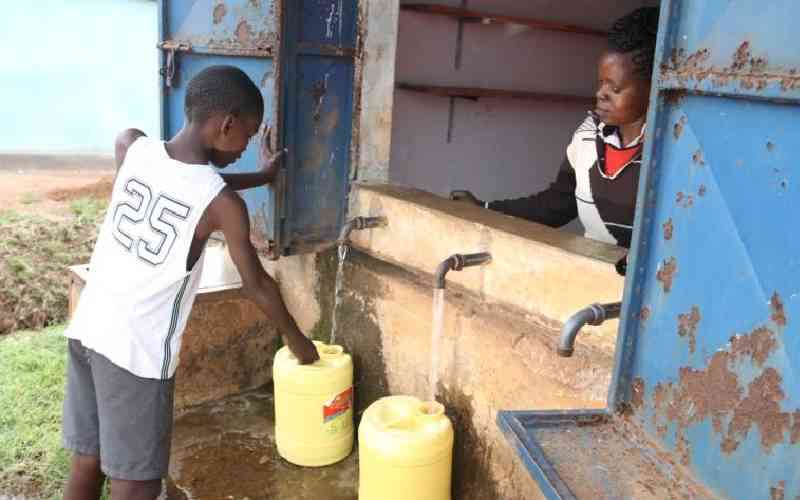×
The Standard e-Paper
Home To Bold Columnists

Residents, learning institutions and health facilities in three counties have a reason to smile after the completion of African Development Bank (AfDB) funded water and sanitation projects in partnership with the national government.
The Sh114.3 million projects under the Kenya Towns Sustainable Water Supply and Sanitation Programme cover more than 20 institutions and five health facilities in Kisii, Nyamira and Homa Bay counties.